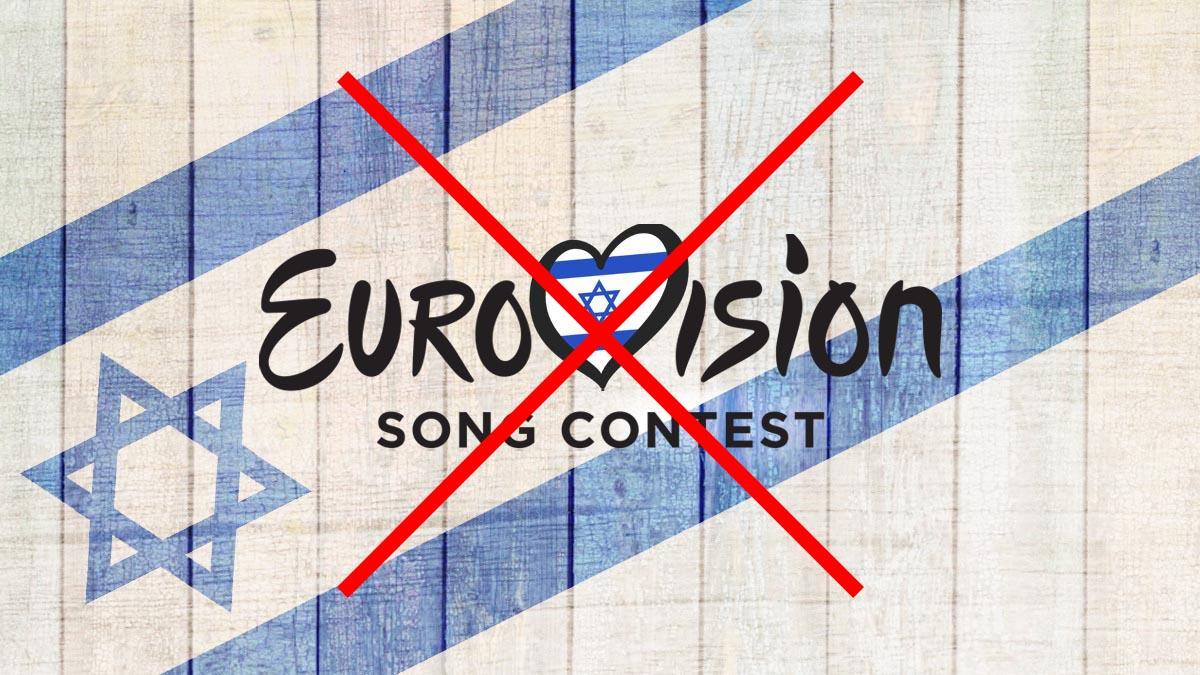
A huge controversy in Basel: over 70 former Eurovision participants demand Israel’s disqualification from Eurovision 2025. Who signed the letter, and what’s behind this wave of criticism toward Israel?
The Eurovision world is once again in turmoil – and not for the reasons you might expect. Seventy-two former contestants have signed a public letter calling to exclude Israel and its national broadcaster from this year’s competition, where Yuval Raphael is set to represent Israel and is preparing for her first rehearsal on the Eurovision stage later today.
This initiative, first reported by British outlet “The Independent”, has sparked mixed reactions, with growing criticism: should artists really turn Europe’s biggest musical event into a platform for political activism?
The letter, addressed to the European Broadcasting Union (EBU), accuses the organization of whitewashing Israel’s actions in Gaza – a repeated and highly contested claim that seems, to many, driven more by political motives than genuine concern for Eurovision’s founding principles.
Strong Words and an Unprecedented Attack
The letter, published exclusively on “The Independent” , includes statements such as:
“We, the undersigned former Eurovision participants, call on all members of the European Broadcasting Union to demand the exclusion of KAN, the Israeli national broadcaster, from the Eurovision Song Contest. KAN is complicit in Israel’s genocide against Palestinians in Gaza and the decades-long regime of apartheid and military occupation it enforces against the entire Palestinian people.”
The signatories added:
“We believe in the unifying power of music, and therefore refuse to allow it to be used as a tool to whitewash crimes against humanity.”
And further:
“Last year, we were appalled by the EBU’s decision to allow Israel to participate while it continued committing genocide, broadcast live for the entire world to see. The result was disastrous.”
While these statements may resonate with some, others view them as inflammatory and provocative, especially considering Eurovision’s long-standing mission to remain apolitical and serve as a platform for cultural exchange.
Who Signed the Letter – and Why?
Among the signatories are Mae Muller, the UK’s 2023 contestant; Charlie McGettigan, Ireland’s 1994 winner; and Fernando Tordo, Portugal’s 1973 participant. Thea Garrett, Malta’s 2010 representative, also signed and was quoted saying:
“It can’t be one rule for Russia and a completely different rule for Israel. You bomb, you’re out.”
This raises a critical question: are these signatures a purely principled stand, or are we seeing yet another attempt to drag the contest into the murky waters of political controversy? The fact that Israel so often becomes the focal point of these campaigns – despite the region’s complex realities – certainly invites reflection.
Old Claims Recycled – and the Same Familiar Narrative
The letter references a 2023 incident where a KAN reporter was filmed joking with Israeli soldiers while writing a “message for Gaza” on a tank shell – a clip that has already been widely debated. Additionally, Irish contestant Bambie Thug is quoted accusing KAN of inciting against her:
“They incited violence against me not once, not twice – but three times.”
Are isolated incidents like these enough to justify a blanket ban on an entire country? Critics argue that such narratives too often aim to single out Israel unfairly on the global stage.
Political Pressure in a Musical Disguise
This is far from the first time the EBU has faced pressure of this kind. This year, broadcasters from Spain, Iceland, and Slovenia all sent official letters urging the EBU to reconsider Israel’s participation. However, the EBU reiterated its stance, stating it is “aware of concerns regarding the situation in the Middle East” but remains “in constant contact with all participating countries.”
It’s worth noting that last year, despite boycott threats, Israel participated with Eden Golan, performing “October Rain” after it was amended to comply with EBU guidelines. This year, Israel is represented by Yuval Raphael, who has become a symbol of resilience amid growing calls for exclusion.
Are These Artists Upholding Eurovision’s Spirit?
The letter concludes with a dramatic statement:
“Silence is not an option. When authoritarian movements and the far-right are on the rise globally, our duty to speak out has become more urgent. We declare together: the EBU’s complicity with Israel must end.”
But the question remains: is this truly a fight for global justice, or yet another attempt to politicize Europe’s musical showcase? Time and again, Eurovision – a contest meant to foster unity – becomes an easy target for political agendas, with Israel often paying the price. While many in Europe may be moved by the letter, the real question is whether anyone genuinely believes that banning songs will bring about meaningful change.
Eurovision 2025: Dates and Time
The Eurovision Song Contest for 2025 will take place in May, as per tradition. Here are the exact dates:
-
First Semi-Final: Tuesday, May 13th, 2025
-
Second Semi-Final: Thursday, May 15th, 2025
-
Grand Final: Saturday, May 17th, 2025
For those wondering “What time will Eurovision 2025 air?” each event will begin at 21:00 CET.
Source: independent
Eurovision 2025: This will be Switzerland’s 65th participation in the Eurovision Song Contest. Switzerland joined the competition in 1956, being one of the seven founding countries, and has won three times over the years. Its most recent victory was at the last Eurovision in 2025, with Nemo’s song “The Code.” This win follows Switzerland’s previous victory in 1988 with the song “Ne partez pas sans moi,” performed by international singer Céline Dion.

